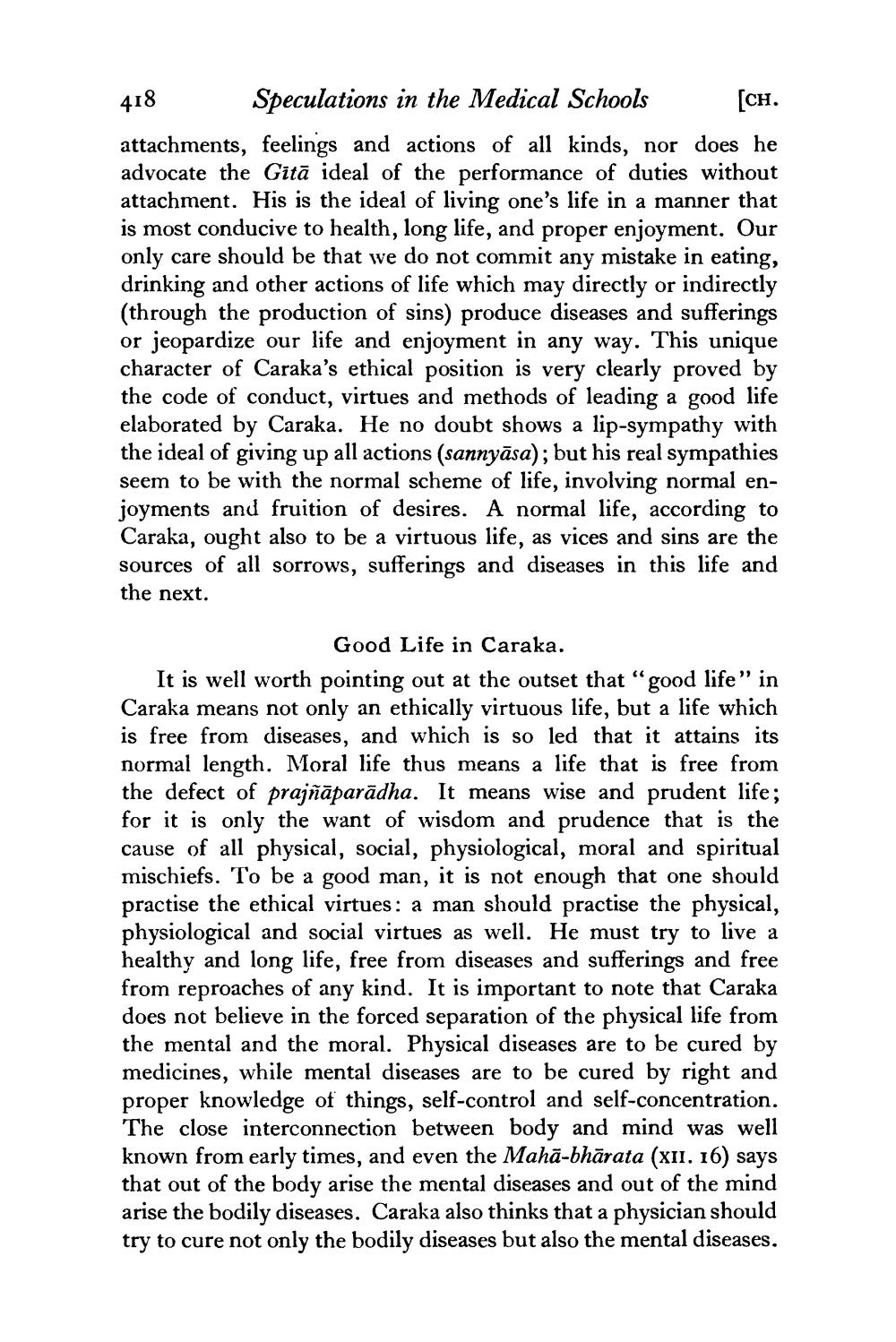________________
Speculations in the Medical Schools
[CH.
attachments, feelings and actions of all kinds, nor does he advocate the Gită ideal of the performance of duties without attachment. His is the ideal of living one's life in a manner that is most conducive to health, long life, and proper enjoyment. Our only care should be that we do not commit any mistake in eating, drinking and other actions of life which may directly or indirectly (through the production of sins) produce diseases and sufferings or jeopardize our life and enjoyment in any way. This unique character of Caraka's ethical position is very clearly proved by the code of conduct, virtues and methods of leading a good life elaborated by Caraka. He no doubt shows a lip-sympathy with the ideal of giving up all actions (sannyāsa); but his real sympathies seem to be with the normal scheme of life, involving normal enjoyments and fruition of desires. A normal life, according to Caraka, ought also to be a virtuous life, as vices and sins are the sources of all sorrows, sufferings and diseases in this life and
the next.
418
Good Life in Caraka.
It is well worth pointing out at the outset that "good life" in Caraka means not only an ethically virtuous life, but a life which is free from diseases, and which is so led that it attains its normal length. Moral life thus means a life that is free from the defect of prajñāparādha. It means wise and prudent life; for it is only the want of wisdom and prudence that is the cause of all physical, social, physiological, moral and spiritual mischiefs. To be a good man, it is not enough that one should practise the ethical virtues: a man should practise the physical, physiological and social virtues as well. He must try to live a healthy and long life, free from diseases and sufferings and free from reproaches of any kind. It is important to note that Caraka does not believe in the forced separation of the physical life from the mental and the moral. Physical diseases are to be cured by medicines, while mental diseases are to be cured by right and proper knowledge of things, self-control and self-concentration. The close interconnection between body and mind was well known from early times, and even the Mahā-bhārata (XII. 16) says that out of the body arise the mental diseases and out of the mind arise the bodily diseases. Caraka also thinks that a physician should try to cure not only the bodily diseases but also the mental diseases.




